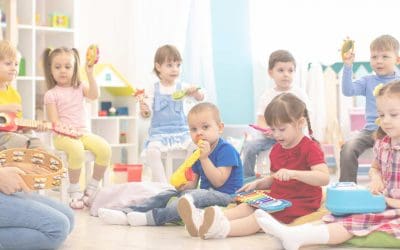Social Development In Children
We all know how important it is to have friendships, people we like and who like us, and people we trust. While babies as young as 6 months may begin to show positive interest in each other, young children typically play alongside rather than with each other until the age of three or four.
As children grown up, some find it harder than others to navigate social relationships. They may feel shy or they may lack the social communication skills to effectively engage with others. Other children may have poor impulse control or ability to calm down if upset.
Here are some ways to enhance social development in children:
Praise pro-social behaviours
From a very young age, you can praise children for waiting, taking turns and sharing. The most effective praise is labelled and specific e.g. “Good job waiting your turn” rather than “well done”. You can also make up songs to help children while they are doing these things e.g. “we are waiting, we are waiting, for our turn, for our turn”
Puppets and role-play
Use puppets and role-play to teach your child ways to interact with others. Set up play scenarios. Initially you should be the person seeking to join the play. Later you can see if they want to try. Try and incorporate the following themes and questions
Initiating play
- “What are you doing?”
- “Can I play?”
- “That looks like fun. Can I join in?”
- “What can I do?”
- “Who can I be?”
Paying attention to feedback
- Make eye contact with the person you are talking to
- Listening to their response (act out positive and negative responses)
- Moving away from someone who ispushing, swinging their arms at you etc.
Sustaining play
- Asking if you can have a turn
- Sharing spontaneously
- Accepting when others do not want to share
- Taking turns in who leads the play
Quiz game
You can also make a game out of social scenarios and what to do. Use the questions below and think of some of your own. Put them on cards and put them in a hat or other container to pull out and take turns answering.
- You are at school and you have finished painting and want to go play with the kids at the sand tray. What could you say to join the play?
- Someone in your class grabs a toy from you. What should you do?
- You are at school and feeling sad. What is one thing you could do? Where could you go?
- You see someone building a castle with blue blocks. You want to use some blue blocks to build a car. What should you do?
- Someone says something that hurts your friend’s feelings and makes them sad. What should you do?
- Share a time you helped someone
Teach and reinforce social skills through song.
Children learn best when things are fun, and through practice and repetition. Check out http://growing-sound.com/ for songs and videos on the themes of social skills, emotional regulation and more.
For more ideas, look at the book, The Incredible Years by Carolyn Webster-Stratton.
Want more on how to foster your child’s social development?

Dr. Jemma Helfman is a child and adolescent clinical psychologist. She works at Kidcrew, providing assessment and interventions for children with a variety of presenting difficulties. Jemma also provides consultation and training to schools and daycares.










